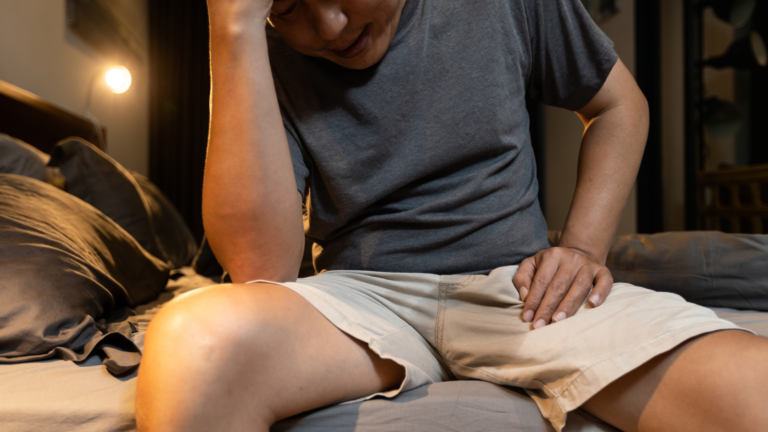
Health
The first signs of prostate problems
Posted April, 16 Reading time 10 min

What are the first 10 Symptoms of Prostate Problems?
Prostate diseases are very common, generally with advancing age.
The good news is that, nowadays, there are already many diagnostic and treatment solutions that seek to restore the patient’s quality of life.
However, for this to be possible, you must first recognize the signs that something is not right so you know when to act and ask for help.
Today we will learn about the first warning signs to maintain good health.
How do you know there is a problem with your prostate?
When the prostate undergoes any change, its normal functioning is affected.
From then on, it is quite common for some signs to begin to become noticeable that, by habit, tend to condition patients’ lives and are a source of discomfort and embarrassment.
Therefore, you should be aware of the following symptoms:
- Burning sensation or pain when urinating;
- Urge to urinate very frequently;
- Waking up several times during the night to urinate;
- Difficulty stopping or starting urination;
- Blood in urine;
- Pain when ejaculating;
- Inability to retain urine;
- Weak or intermittent urinary stream/stream;
- Pain in the lower back, pelvic, rectum or thighs.
However, be aware that even if you have the condition, it does not mean that you have to experience all the symptoms at the same time.
The best advice in cases where patients identify some of the characteristic symptoms of prostate problems is to always ask for medical help, so that the specialist is able to make an accurate diagnosis through clinical evaluation and the necessary tests, followed by effective treatment.
Prevalence of Enlarged Prostate: Age and Population Most Affected
An enlarged prostate, medically known as benign prostatic hyperplasia (BPH), primarily affects men in their later years. Statistics show that the condition is somewhat uncommon for men under 40 but the likelihood increases significantly with age.
About half of all men between the ages of 51 and 60 could be navigating this condition, and up to 90% of men over 80 might experience symptoms of BPH. It is more prevalent among certain populations, with varying rates observed across different ethnic groups.
For instance, it has been reported that Caucasian and African American men might experience higher rates of enlarged prostate symptoms than Asian men. Understanding these demographics helps in identifying who is most at risk and emphasizes the importance of regular medical check-ups for early detection.
Everyday Challenges Associated with an Enlarged Prostate
Living with an enlarged prostate can significantly affect a man’s daily life, primarily through urinary problems which are the most common symptoms. Men might find themselves needing to urinate frequently, particularly at night, which can disrupt sleep and decrease quality of life. The urge to urinate might come suddenly and be difficult to control, potentially leading to embarrassing situations.
In severe cases, a man might find it difficult to begin urination, or feel that he can’t completely empty his bladder. These urinary symptoms can affect social life, emotional well-being, and productivity, influencing nearly every aspect of day-to-day activities.
Dietary and Lifestyle Adjustments for Managing Enlarged Prostate
Making some strategic lifestyle and dietary changes can help manage the symptoms of an enlarged prostate and improve overall prostate health. Here are some effective tips:
- Hydration Management: Drinking plenty of fluids during the day but reducing intake a few hours before bedtime can help manage nocturia, the frequent urge to urinate during the night.
- Balanced Diet: Incorporating fruits and vegetables rich in antioxidants can reduce the risk of prostate problems. Foods high in zinc, such as pumpkin seeds and nuts, are also recommended for maintaining good prostate health.
- Regular Exercise: Physical activity can help to alleviate symptoms or prevent the progression of BPH. Even moderate walking can have significant benefits.
- Timely Bathroom Visits: Waiting too long to urinate can overstrain the bladder. Regularly going when the need arises can help mitigate symptoms.
- Avoiding Alcohol and Caffeine: These substances can irritate the bladder and exacerbate symptoms, so reducing consumption can be beneficial.
These lifestyle tips are not just beneficial for those with an enlarged prostate; they’re generally good practices for aging men looking to maintain optimal health.
